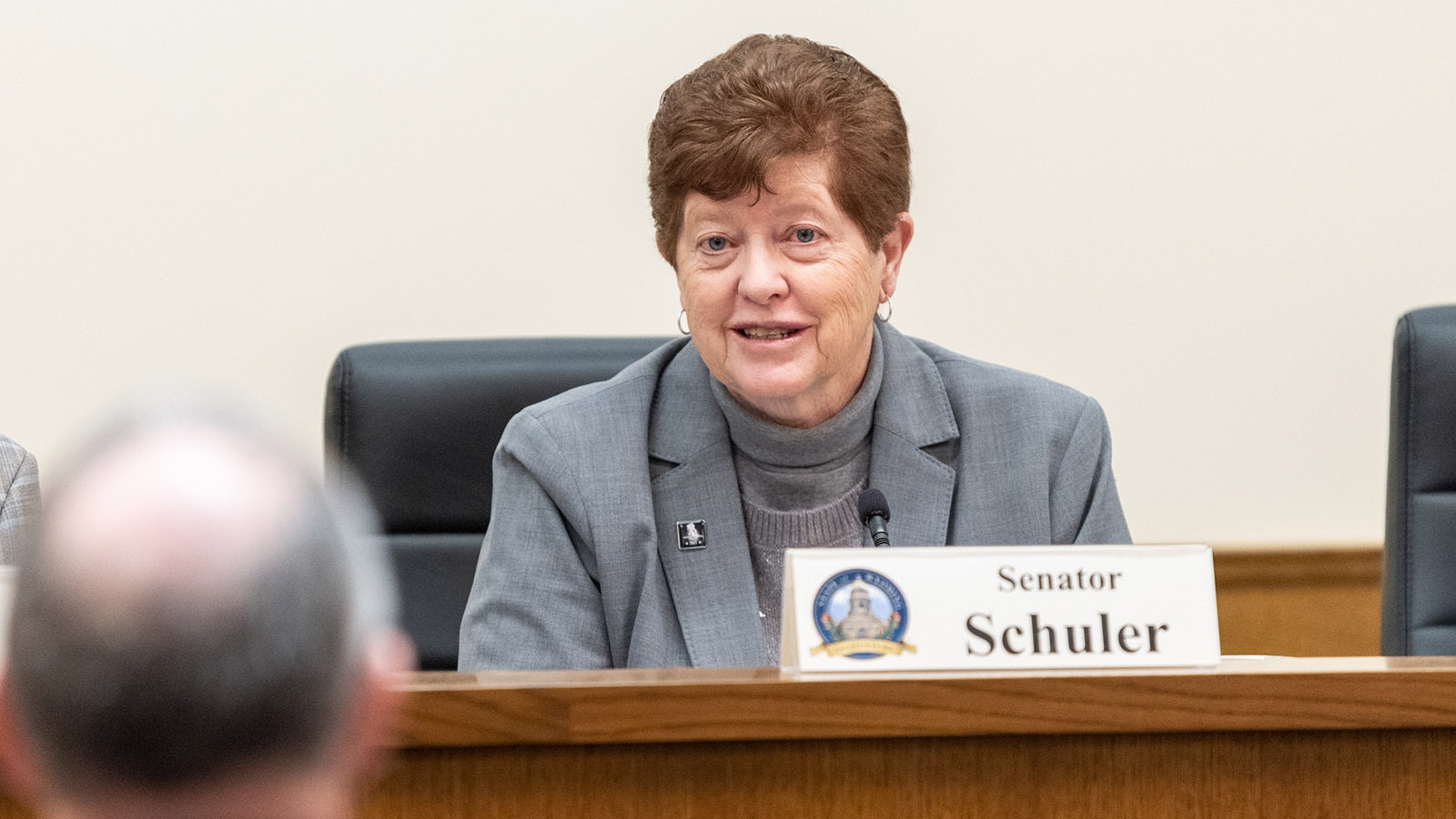A proposed law forbidding biological males from competing in girls’ public school sports in Wyoming narrowly survived a legislative committee vote Thursday and now faces the state House of Representatives.
Senate File 133 would keep transgender girls from competing against biological girls in interscholastic sports. The House Education Committee advanced it to the House floor with a 5-4 vote of approval after more than two hours of testimony, debate and revision.
A transgender woman, a transgender child and another child testified against the bill.
Santi Murillo, 25, said it would invite gender policing and subject even non-transgender female athletes to investigations into their biology.
Murillo is a transgender woman who began transitioning while attending the University of Wyoming and competing in sports.
“This bill reinforces the idea that the inclusion of trans women is harmful to cisgender women, and this couldn’t be any further from the truth,” said Murillo. “I’m 5-foot-4, 105 pounds. Make of that what you will.”
High Jump
Balie Dockter, a mother in Green River, countered Murillo’s testimony, saying her daughter lost a chance to compete in state track because a transgender athlete easily outdid her in the high jump.
“For a long time I’ve watched transgender athletes from afar and my heart goes out to both sides of this argument,” said Dockter.
But including males in girls’ sports could deter girls from competing and strip them of valuable opportunities and lessons, she added.
“We can see science through our political lens all we want to, but to me it’s cut and dried, and I can’t believe it’s being tolerated,” said Dockter.
Ten Amendments
Before the committee passed SF 133, it changed it in numerous places via 10 amendments.
Some of the changes involved a part of the bill that would have allowed the governor to adopt a commission to settle transgender athlete appeals case by case – if the ban fails in court.
The committee changed that to put the Wyoming High School Athletics Association in charge of the board rather than the governor.
Rep. Ryan Berger, R-Evanston, offered that change because he said it would de-politicize the board’s decision-making.
Rep. Karlee Provenza, D-Laramie, said she anticipates a lawsuit and asked for an amendment to appropriate $1 million in state money toward defending the law in court. The committee adopted that amendment as well.
Legal Landscape
The legal landscape surrounding transgender issues is unsettled. The federal government, including the U.S. Department of Education interprets Congress’ laws against sex discrimination as barring discrimination against transgender and gay people as well.
However, that interpretation stems from a U.S. Supreme Court decision, Bostock vs. Clayton County, which only addressed the term “sex” in Title VII of the 1964 Civil Rights Act.
SF 133 sponsor Sen. Wendy Schuler, R-Evanston, said she drafted the bill to protect Title IX of the law, which promises women and girls fair competition in sports.
Whether Title IX’s embargo on “sex” discrimination includes transgender and gay people has not yet been decided nationwide. Numerous states are currently suing the U.S. Department of Education for issuing orders interpreting Title IX according to the Bostock case.
The federal judge overseeing that case has blocked the department from enforcing its interpretation while the case is ongoing.
The Conversations That Will Happen
Provenza wept while explaining her no-vote on the bill. She indicated that letting the state House discuss the bill will endanger transgender people.
“I have constituents in my district that have died by suicide, who are trans,” said Provenza. “And I am horrified to bring this bill out on the floor, because of the conversations that will happen.”
Provenza also drew attention to the children who testified before the committee and said that while she saw parents and grandparents who supported the bill, she didn’t see any non-trans children come to oppose it.
Guidance, Please
Berger said that he has coached sports for many years and knows how difficult the issue is. He said coaches and school staffers for years have sought guidance from school board members, athletic directors, administrators and on how to approach transgender sports issues.
“And we’ve always hit the wall,” he said, adding that schools may be happy to now have guidance from the Legislature.
Rep. Martha Lawley, R-Worland, during the amendment process helped to put legal sideboards into the bill. She told the children and others who testified against it that it mattered that they were there to testify.
“I hope you see, we tried to take in what you said and tried to make some changes,” said Lawley.
But, she added, there should be an effort to preserve girls’ and women’s opportunities to strive and to succeed in sports, especially where there’s the hope of receiving scholarships.
Lawley also said that mental health can be a serious issue for non-trans and trans girls alike, especially during the teen years.
Roll Call
Committee Chairman David Northrup, R-Powell, paused before giving his vote on the bill, likely knowing he’d be the tiebreaker vote.
Northrup voted in favor of SF 133, as did Berger and Lawley, and Republican Reps. Ocean Andrew (Laramie), Ken Clousten (Gillette).
Voting against the bill were Provenza and Republican Reps. Lane Allred (Afton), Landon Brown (Cheyenne) and Jerry Obermuller (Casper).
Obermuller said the children’s testimony changed his vote to no, because seeing them closely convinced him that the issue should be handled by local families and schools close to each child.





